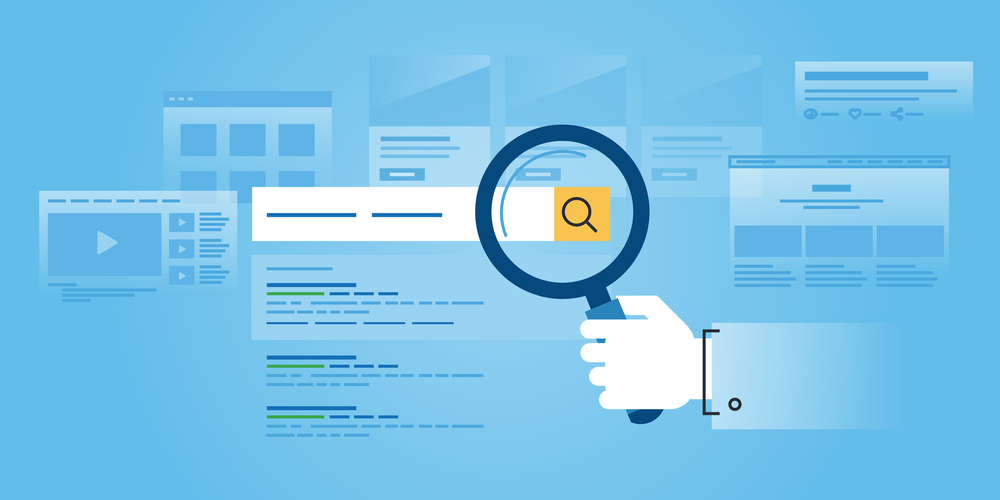Podcast: Download
Subscribe: Apple Podcast Google Podcasts Spotify
For episode 191 of The Search Engine Journal Show, I had the opportunity to interview Mark Traphagen, Vice President, Product Marketing and Training at seoClarity.
Traphagen talks about how and why SEO professionals need to be thinking differently about rankings today and beyond.

What is happening with the change and the evolution of search today versus 10 years ago?
Mark Traphagen (MT): It seems like a lot of us that are in the search marketing industry certainly feel like it’s accelerated and we all know that that could be a trick of our minds.
It always seems like there’s more happening in the present than there ever was in the past for all of us, even in our lives.
But at seoClarity, we actually track those things.
We take literally hundreds of thousands of screenshots, for example, of the search of our clients, actual search results every day.
We have years of tracking data on that and we watch how the SERP changes.
What we’ve seen is that in the last two to three years, it’s definitely been changing at a pace that is exponentially higher than in all the years of search history before that.
We’re actually seeing those changes, we have the data that we can track those.
Then you ask why is that or how is that happening?
I think a lot of that may have to do with just the advances in automation, particularly machine learning and what artificial intelligence that Google and other search engines are employing.
It wasn’t all that many years ago that most of this was kind of hand-done if we want to change something, this would go back in the slide rule days, engineers had to figure it out and program it and code it and that sort of thing.
Now a lot of that is being done at a much faster pace by using things like machine learning to Google can be more agile and change things constantly and test new things and adjust, so search is changing almost daily.
If things are changing so fast, do we really even need to keep up with the changes? How do we adjust and how do we really focus on even keeping up with it?
MT: I think one of the biggest changes in attitude that I see the most successful SEOs having is to resist the temptation to get hold by every little change that happens.
Like every update, every reconfiguring of the search results page, every new search reader’s guideline that comes out.
I mean, you want to keep up with those things and they’re interesting to know about and you want to them, but I think we’ve been at a time for a while now when the smartest SEOs are realizing that the most value for their companies or their clients comes from keeping a big picture in mind and going back to the fundamentals:
- Improving the technical situation of your site.
- Always improving your content situation.
- Making everything from user interfaces or experience to what the content is about.
All these things with the user in mind.
Because the big picture is, what Google is moving toward and pushing toward and getting better and better at, year by year, is matching that user experience – matching what the ideal Google user is actually trying to get to and to use.
So, I’m not saying ignore the small things, but don’t get carried by the moment-by-moment trends.
Brent Csutoras (BC): But the more you start to see the evolution of search right now, the more you start to see a need for people to have the knowledge to be able to determine that.
Like you said, really savvy SEOs are extremely essential right now, wouldn’t you say, considering the fact that you have to be able to determine which one of these bright and shiny objects is worth chasing?
MT: That’s really well put and I think it’s more essential than ever. And the area of expertise has changed.
As you put it earlier, back in the old days at least, you could be an SEO if you knew how to link build, you knew enough to make sure that your site was easily crawlable, and you had a little bit of understanding of the importance of content, things like that.
But now it’s become much more an area of needed expertise, which is great for the industry, for our careers, those that are willing to invest the time and becoming the experts of that.
We now have to be real decision-makers, marketing decision-makers where we’re looking at, as you said, the most important thing is:
- What’s the priority?
- Where do I spend my time?
Right now while we’re recording this, we’re in the middle of the pandemic experience and I think that’s coming home more than ever.
But one of the things that a crisis does is it gets you hyper-focused on what really matters.
What do we need to get down to?
So having the data is so important.
I think more and more SEOs are realizing I need to not only have access to the best possible data, but have the experience and the wisdom to know:
- What’s the important data?
- What should I be looking at first?
- What does it mean?
Then, secondarily, communicating that to the rest of my organization or my clients depending on your situation to help them understand how we can work together to make the improvements that are going to matter.
How do people need to think about ranking reports in relation to SEO decision-making?
MT: Ranking reports are still valuable for what they are.
But I think what we’re seeing is that if you rely on what I would call a traditional ranking report alone, you can get a very misleading picture.
And this ties in very well to what we were talking about a moment ago about it’s not just having data and then next extension is having the right data, but also knowing how to look at it.
- Where do you slice the pie?
- Where do you need to go?
- What might be missing from that data?
I think the big story with calling a traditional ranking report (focused on the traditional 10 blue links) where we can’t go by 10 anymore…
So the simple links to your website on the Google search result page no longer reflect the reality of what happens in a great many search queries.
The most obvious example that we’ve seen is the growing number of search features, which are all the things that can appear on a search result page or even within those traditional web links that are not just that good old-fashioned blue link with a two or three-line description underneath it.
More Resources:
- What to Include in Your SEO Rank Report (Hint: It’s More Than Rank) (seoClarity)
- How to Track SEO Rankings and Prove the Value of Your Work (Without Losing Your Mind in the Process) (seoClarity)
This podcast is brought to you by Ahrefs and Opteo.
To listen to this Search Engine Show Podcast with Mark Traphagen:
- Listen to the full episode at the top of this post
- Subscribe via Apple Podcasts
- Sign up on IFTTT to receive an email whenever the Search Engine Journal Show RSS feed has a new episode
- Listen on Stitcher, Overcast, or TuneIn
Visit our podcast archive to listen to other Search Engine Journal Show podcasts!
Image Credits
Featured Image: Paulo Bobita

![How SEOs Need to Be Thinking Differently About Ranking with Mark Traphagen [PODCAST]](https://www.searchenginejournal.com/wp-content/uploads/2020/04/sejshow-featured-image-ep-191-5e96ec707ea87.jpg)



